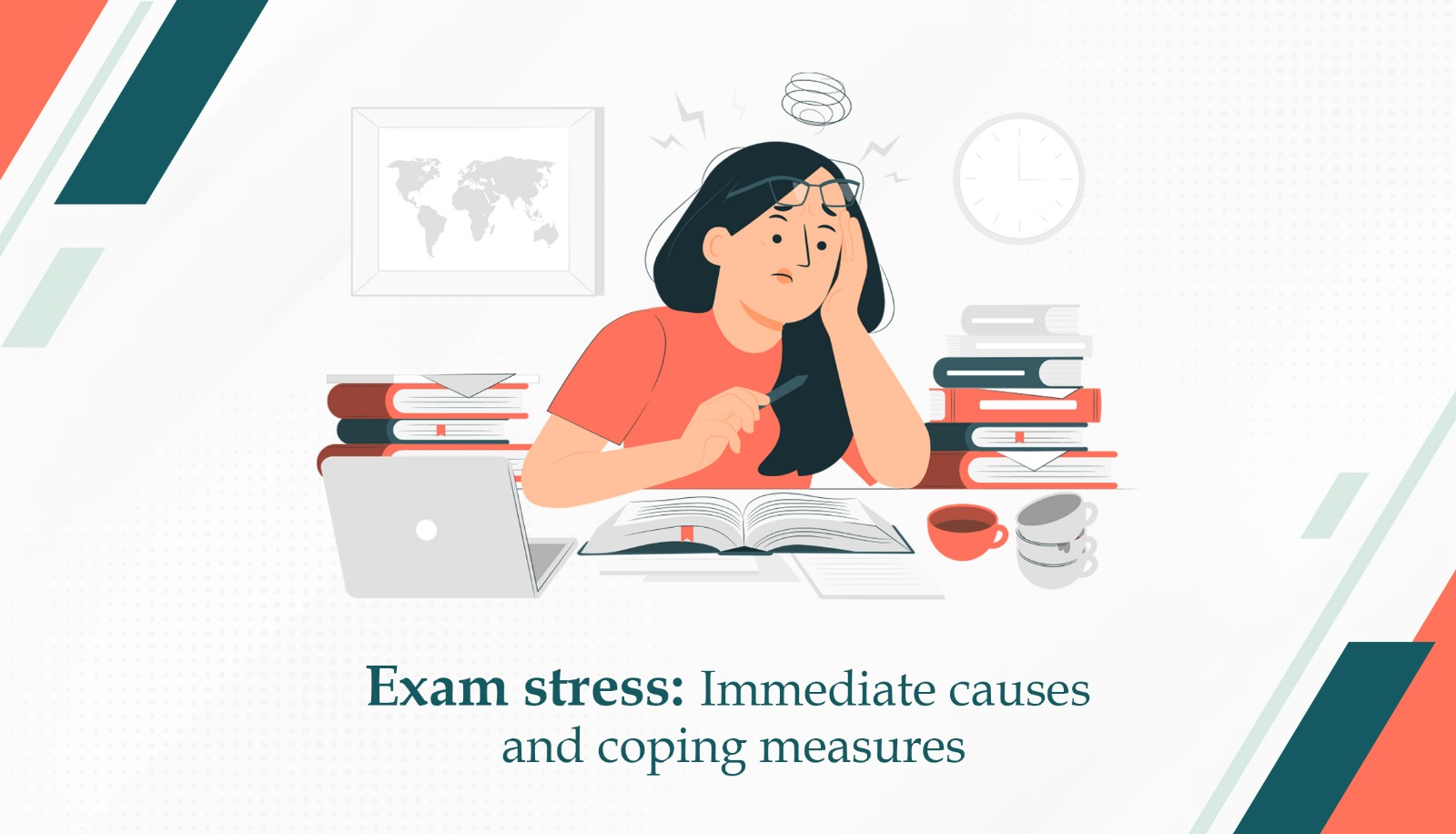
Exam stress and its immediate causes and coping measures
Exam stress, a common phenomenon, has gripped students of all age groups under its clutches. It continues to weave fear and anxiety by igniting pressure among the examinees right before the exam starts knocking on their door.
However, feeling anxious or stressed before sitting for any exam is normal. Exams are simply a mode of testing the knowledge and skills of the students. The stress ignited due to sitting for the exam, clearing papers, and scoring high marks can overwhelmingly impact the students. To be precise, exam stress can affect mental well-being along with performance.
The common symptoms associated with exam stress are frequent headaches, stomach aches, nervousness, hopelessness, irritation, anger, loss of appetite, and difficulty sleeping and concentrating.
Causes of Exam stress on students:
Several factors can take a toll on the students when exams ring around the corner. Let us dive into some reasons.
1. Several students face pressure from their immediate parents and teachers by setting high-end expectations and results.
2. Students often fear failing exams which eventually results in stress and anxiety. The fear is often associated with subjects they struggle with for a long time and have less confidence in securing good grades.
3. When students do not fully prepare themselves by missing out on topics to cover, they stress out. It could result from a lack of proper study time and incomprehensible texts, making it difficult for them to cover up.
4. Students are pushed into time constraints during exams. As a result, some do not comply with working under such time-bound situations and end up stressing themselves.
Measures to Combat exam stress
Several ways through which students can cope and combat their exam stress are listed below.
1. When we prepare things in advance, nothing can stop us from attaining our goals. Similarly, students can start their preparation early by charting a routine, breaking down the syllabus, and studying accordingly. As a result, they will not fall into the trap of last-moment preparation. It will make them feel less pressured and help them prepare with ease.
2. Developing a study schedule is a suitable choice for students. Keeping an organized stack of the materials, such as textbooks, notes, and external resources that are handy in the study area, will lessen the chaos while studying.
3. Students need to take breaks during their study sessions. The mind should get a chance to rest and recharge itself for further grilling sessions. Breaks can take the form of brisk walks, power naps, listening to music or nurturing hobbies.
4. A proper, healthy, and nourishing diet with regular exercise go a long way in battling stress. It helps the students enhance their concentration levels and helps them focus more.
5. Coping with exam stress is quite a struggle that students find themselves deeply trapped in. Once trapped, it becomes challenging to come out of its clutches. At this point, they should seek support from friends, family, or mental health professionals.
Conclusion
Getting stressed during or before exams is quite natural. Still, it is equally essential for students to pay attention to their stress levels, especially when it reaches severity and that starts bothering their minds and lifestyle. Taking the necessary steps, as listed above, can pull them out of the last-minute stress of the exams. We should not allow stress levels to dictate our life.
 AIR CONDITIONED
AIR CONDITIONED




